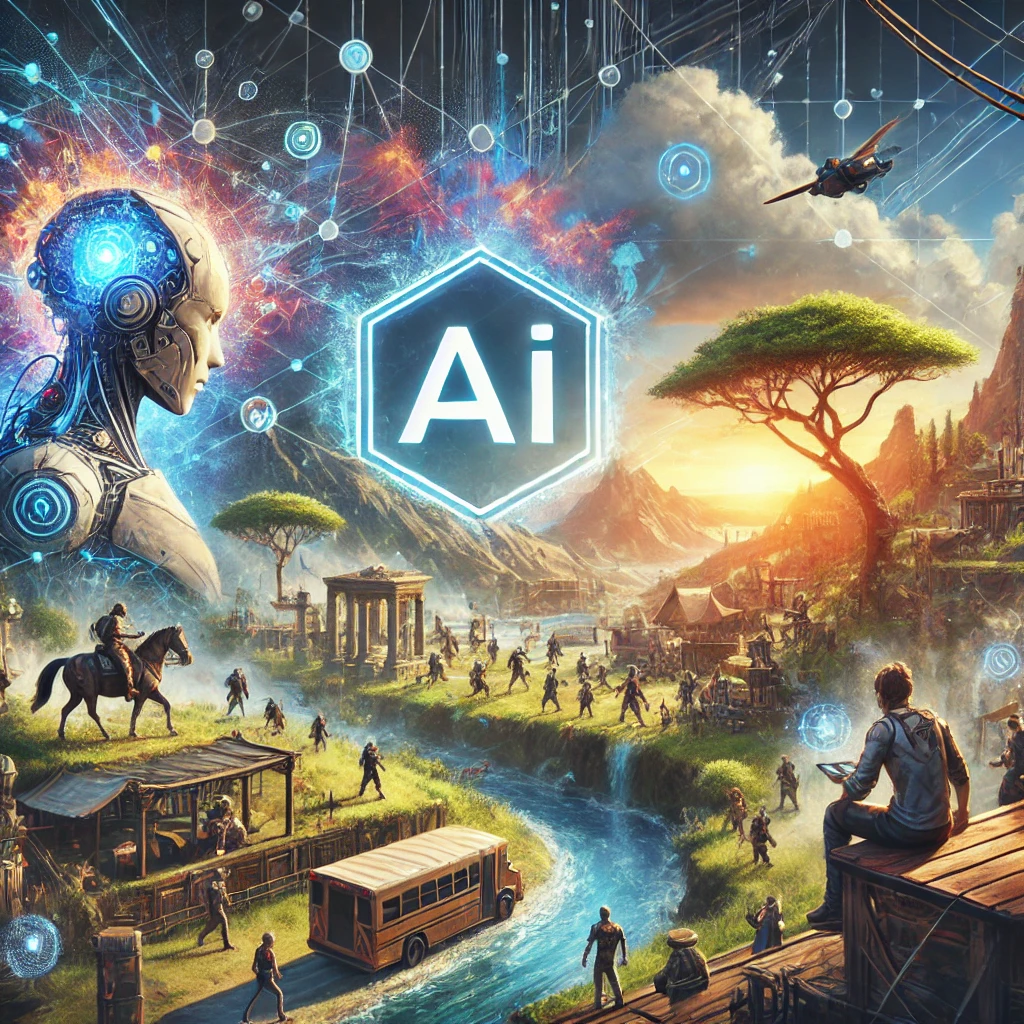Artificial intelligence (AI) has become a transformative force in the gaming industry, enabling the creation of realistic worlds and dynamic characters that enhance player experiences. The integration of AI into game development has revolutionized how games are designed, played, and perceived, pushing the boundaries of what is possible in interactive entertainment.
AI plays a crucial role in crafting immersive and lifelike game environments. Procedural generation, powered by AI algorithms, allows developers to create vast, intricate worlds that adapt to player interactions. This technique not only saves time but also ensures that each player’s experience is unique. Games like “No Man’s Sky” and “Minecraft” use procedural generation to build expansive landscapes, populated with diverse flora, fauna, and geological features.
Realistic Game Worlds
AI also enhances environmental realism by simulating weather patterns, day-night cycles, and ecosystems that respond dynamically to player actions. For instance, in open-world games, AI systems manage wildlife behavior, weather changes, and NPC (non-player character) routines, creating a living, breathing world that feels authentic and engaging.
Intelligent NPCs
Non-player characters are a cornerstone of many games, and AI has significantly improved their behavior and interactions. Traditional NPCs followed pre-set scripts, leading to predictable and sometimes repetitive interactions. Modern AI-driven NPCs, however, can learn and adapt to player strategies, making gameplay more challenging and rewarding.
AI techniques such as neural networks and reinforcement learning enable NPCs to exhibit complex behaviors, from strategic combat tactics to emotional responses. In games like “The Last of Us Part II” and “Red Dead Redemption 2,” NPCs display realistic reactions based on the player’s actions, such as showing fear, aggression, or camaraderie, which adds depth to the narrative and emotional engagement.
Procedural Storytelling
AI has opened new avenues in storytelling within games, allowing for procedural narrative generation. This technique involves using AI to create branching storylines that respond to player choices, ensuring that each playthrough is unique. Games like “Mass Effect” and “The Witcher 3” employ AI to adapt the storyline based on player decisions, leading to multiple possible endings and a personalized experience.
This dynamic storytelling approach not only increases replayability but also immerses players in a world where their choices have meaningful consequences, fostering a deeper connection to the game’s characters and plot.
Enhanced Game Design
AI is also a powerful tool in the hands of game designers, providing new possibilities for creativity and innovation. Through machine learning, developers can analyze player data to understand preferences, skill levels, and behavior patterns. This insight helps in designing adaptive difficulty levels, ensuring that games remain challenging yet accessible to a wide audience.
Moreover, AI-assisted tools enable designers to automate repetitive tasks, such as texture generation or character animation, freeing up time for more creative endeavors. This not only speeds up the development process but also results in higher quality game assets.
Conclusion
The integration of AI into the gaming industry has ushered in an era of unprecedented realism and interactivity. By creating lifelike worlds, intelligent NPCs, and dynamic storylines, AI enriches the gaming experience, making it more immersive and engaging for players. As AI technology continues to evolve, the future of gaming promises even more innovative and realistic experiences, blurring the line between virtual and real worlds.


AI in gaming is really cool, but I can’t shake the feeling that it’s taking away some of the magic. Sure, the graphics are stunning and the NPCs are smarter than ever, but what about the artists behind those creations? It’s like we’re trading unique styles for efficiency. I get that it opens doors for everyone to create, but there’s something special about the human touch in games
I totally agree with you! After all, this is both the momentum of the industry and the beginning of its degradation.
many words, didn’t read🤣
AI is making games super realistic! It’s cool how they create believable worlds and characters. The future of gaming sounds even more immersive! Can’t wait to see what happens next!
Whats up, future here! 😂🤣ahaha, the damn AI slop just rolled in